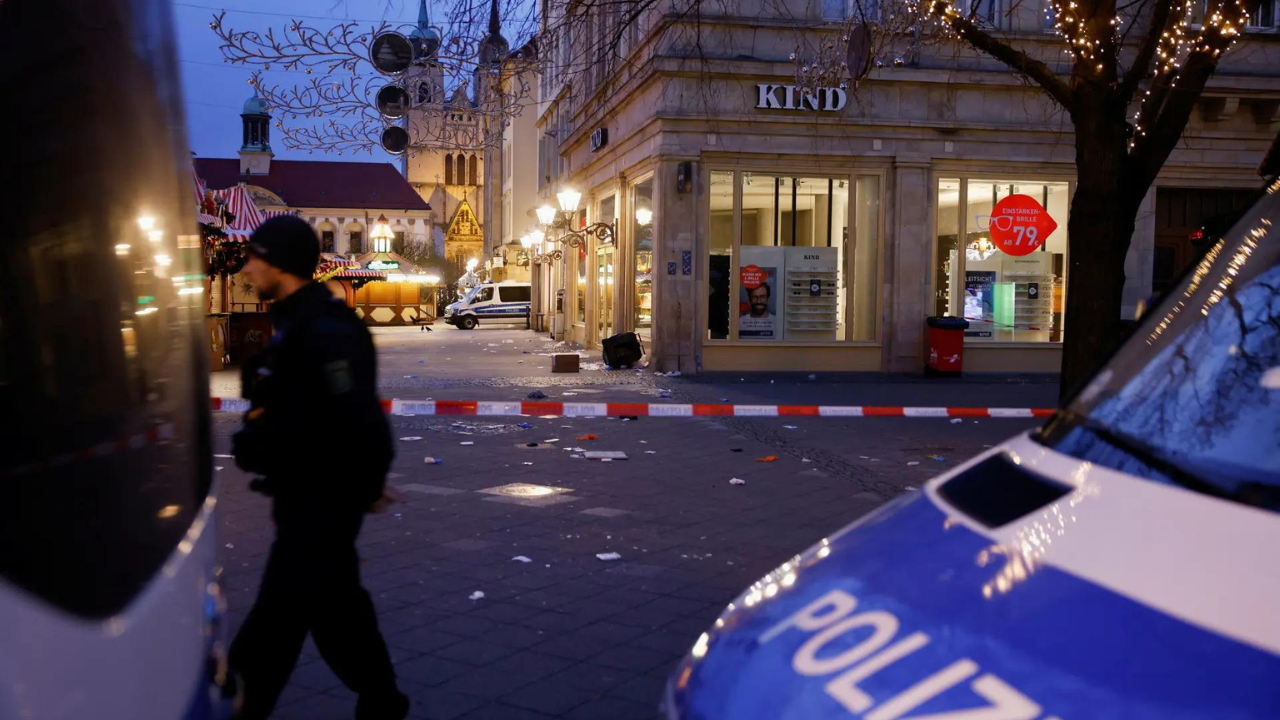Magdeburg Christmas Market Tragedy: Atheist Saudi Doctor's Shocking Act of Violence
In a horrific turn of events that shocked Germany and the world, a Christmas market in Magdeburg was struck by a devastating car attack. The incident, leaving five dead and over 200 injured, has sent ripples of grief and outrage across the nation. But what made this tragedy even more unsettling? The suspect, a Saudi physician residing in Germany for two decades, was an avowed atheist and vehement critic of Islam, his actions seemingly fueled by his anti-Islam sentiments and frustrations with Germany's asylum policies. Prepare to be stunned as we delve into the details of this shocking event.
The Suspect: Taleb al-Abdulmohsen – An Atheist's Unthinkable Act
Identified as Taleb al-Abdulmohsen, the 50-year-old psychiatrist had publicly declared his atheism and established a platform called "wearesaudis.net," aimed at aiding Saudi citizens renouncing Islam to escape to Europe. His outspoken criticism of Islam, notably his infamous statement, “There is no good Islam,” to the FAZ newspaper, painted a stark picture of his worldview. He had also voiced strong opposition to Germany’s immigration policies.
A Voice Against Islam, Now a Voice of Tragedy
While Taleb had gained attention as an activist aiding other Saudi ex-Muslims in seeking asylum, his motivations and personal conflicts remained shrouded in complexity. Various media outlets described the man as both a psychologically disturbed person with an exaggerated sense of self-importance and an outspoken critic of the Saudi regime's treatment of religious minorities and apostates. This man, once a voice for asylum seekers, became an architect of this tragic assault.
The Attack: A Black BMW and a Christmas Market in Chaos
Surveillance footage captured the chilling moment a black BMW plowed through the jubilant Christmas market crowd. The festive atmosphere was instantly shattered, bodies scattered among the overturned stalls of traditional handicrafts, snacks, and mulled wine. The sheer brutality of the act is both sickening and appalling.
The Aftermath: Grief, Mourning, and National Unity
The incident prompted immediate and widespread condemnation, Germany lowering its flags to half-staff as a sign of mourning. The nation, grappling with this terrible act, stood united in expressing deep sympathy for the victims and their families. Chancellor Scholz and Interior Minister Nancy Faeser traveled to Magdeburg for the official state memorial service.
A Nation in Mourning
Magdeburg, the city affected by this horrific event, turned into a central point for both mourning and mutual support for those affected by the event. However, the act also triggered a national debate that goes far beyond merely mourning the casualties.
Germany Re-evaluating Immigration and Integration
This incident could be a turning point for Germany to critically review its migrant and refugee policies, especially its integration protocols that assist new immigrants to adjust to life in Germany. The German government needs to identify the critical issues leading to the feeling of disenfranchisement and hopelessness and take action to prevent future similar incidents.
The Questions Remain: Motivation and Prevention
While the incident appears to have been committed by a lone perpetrator, authorities continue to thoroughly investigate his motives. The questions linger: Was his action purely driven by personal disillusionment, or was it an orchestrated attempt of political or religious terrorism, or a combination of both?
Unanswered Questions and the Search for Understanding
Understanding this horrific attack requires analyzing not only the immediate factors but also the underlying societal conditions in Germany. Germany’s policies must take into account not only integration programs, but also mental healthcare solutions.
The Urgent Need for Mental Health Support and Prevention Strategies
There is now a heightened imperative to strengthen the systems that offer support for asylum seekers and refugees who are grappling with both mental and emotional distress. Early intervention, appropriate treatment, and the integration of religious and ideological counseling are critical in reducing the probability of violence caused by deep-seated psychological issues and frustrations.
Take Away Points
- The Magdeburg Christmas market attack was a tragic incident, leaving five dead and over 200 injured.
- The suspect, Taleb al-Abdulmohsen, a Saudi physician and avowed atheist, was reportedly frustrated with Germany's asylum policies and expressed strong anti-Islam views.
- The attack raises concerns about the integration of refugees and migrants, and the need for stronger mental health support and preventative measures.
- Germany has begun lowering its flags and holding a national memorial to remember those affected by the tragedy.
- The incident highlights an important need to review how Germany integrates immigrants and refugees while making sure mental health programs are adequate.




